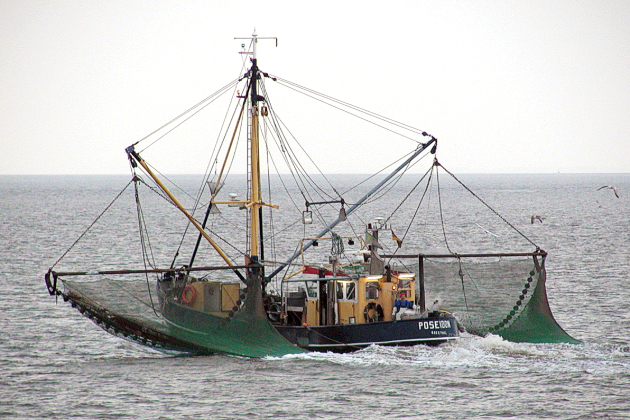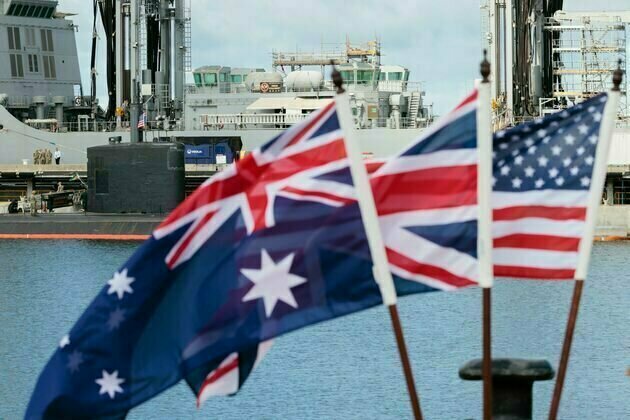This may be as good as it gets: NZ and Australia face a complicated puzzle when it comes to supermarket prices
The Conversation
24 Apr 2025, 03:45 GMT+10

With ongoing cost of living pressures, the Australian and New Zealand supermarket sectors are attracting renewed political attention on both sides of the Tasman.
Allegations of price gouging have become a political issue in the Australian federal election. At the same time, the New Zealand government has announced that "all options" are on the table to address a lack of competition in the sector - including possible breakup of the existing players.
But it is not clear breaking up the supermarkets or other government interventions will improve the sector for shoppers and suppliers.
In 2022, I co-authored a government-commissioned analysis looking at whether New Zealand's two main supermarket groups should be forced to sell some of their stores to create a third competing chain.
We found it was possible under some scenarios that breakup could benefit consumers. But key uncertainties and implementation risks meant consumers could lose overall.
A lot hinges on whether breakup causes supermarkets' input costs to rise or product variety to fall. Even in more positive scenarios at least some consumers could be left worse off.
Competition authorities - the Australian Competition and Consumer Commission (ACCC) and New Zealand's Commerce Commission - have conducted supermarket sector studies. They each expressed concern at significant barriers to entry and expansion in the sector and supermarkets' resulting high levels of profitability.
This year, the ACCC concluded margins earned by Australia's main supermarkets are among the highest of supermarket businesses in comparable countries. Similarly, in 2022 the Commerce Commission found New Zealand's supermarkets were earning excess profits of around NZ$430m a year.
While high profits might mean that market power is being abused, it could also mean managers are doing a good job. Or have had a great run of luck. Alternative explanations for high profits would need to be ruled out before putting fingers on regulatory triggers.
The starting point is to acknowledge that high profits and prices go hand in hand with barriers to entry and challenges in achieving economies of scale.
In other words, some sectors are less competitive than others simply because a lack of demand or high costs make it unprofitable for additional competitors to either enter or remain in the market.
Countries like Australia and New Zealand, with low population densities and large service areas, face high costs of nationwide supply. They also face significant shipping distances from other countries. This limits the ability of overseas entrants using their existing buying and supply infrastructures.
That said, some barriers to entry might be artificial or caused by existing firms stifling new competitors.
Existing supermarkets in both countries have gained controlling stakes in the land needed to set up new supermarkets - something regulatory settings can prevent.
Another challenge for new chains is the process of getting planning and land use consents - something policymakers can address.
This points to key elements of a test for whether supermarkets are charging too much. One is a recognition that there can be natural reasons for limited competition, and unless technologies or consumer preferences change that will remain the case.
Another is a focus on the things that can be changed - whether at the firm or policy level - in a way that benefits consumers and suppliers. Finally, policymakers need to consider whether the benefits of implementing them outweigh the costs.
Building on work developed by Nobel economist Oliver Williamson, a "three-limb test" was used in the 2017 government-commissioned assessment of fuel pricing in New Zealand that I co-authored. The same could be used to assess the supermarket sector.
That three-limb test asks
If the answer to all three limbs is yes, that suggests suppliers are charging too much (or delivering too little) since there are practical ways to improve on the status quo.
A virtue of such a test is that is can be applied in any sector where there are high firm concentration, barriers to entry and high profit margins.
Importantly, the test looks beyond just what firms are (or are not) doing and asks whether policy and regulatory settings are ripe for improvements too.
The test is also pragmatic - it shouldn't trigger changes unless they are clearly expected to do more good than harm. This is important if interventions are risky, costly or irreversible, especially in sectors that are important to all of us.
Politicians on both sides of the Tasman are floating the possibility of supermarket breakup, among other possible interventions. The three-limb test helps to identify whether any proposed interventions are a good idea and whether supermarket prices are higher than they need to be.
 Share
Share
 Tweet
Tweet
 Share
Share
 Flip
Flip
 Email
Email
Watch latest videos
Subscribe and Follow
Get a daily dose of Australian Herald news through our daily email, its complimentary and keeps you fully up to date with world and business news as well.
News RELEASES
Publish news of your business, community or sports group, personnel appointments, major event and more by submitting a news release to Australian Herald.
More InformationInternational
SectionFilipino devotees reenact crucifixion on Good Friday
CUTID, Philippines: On April 18, Good Friday, Christian believers in the Philippines were nailed to crosses in a reenactment of Jesus...
US to restrict visas for 250 Nicaraguan officials
WASHINGTON, D.C.: The United States will limit visas for more than 250 officials from Nicaragua, U.S. Secretary of State Marco Rubio...
Measles outbreak confirmed in Michigan's Montcalm County
LANSING, Michigan: The Health Department in Michigan confirmed a measles outbreak in Montcalm County this week, marking the first such...
US Supreme Court to review trump birthright citizenship move
WASHINGTON, D.C. The U.S. Supreme Court will hear arguments on May 15 about President Donald Trump's attempt to restrict automatic...
Trump signs order to ease seafood industry rules
WASHINGTON, D.C.: President Donald Trump has signed an executive order directing the U.S. Commerce Department to ease regulations on...
World mourns loss of Pope Francis, dead at 88
THE VATICAN - The world is in shock and mourning on Easter Monday as it woke to the news that Pope Francis had died. Having recently...
Sydney
Section52 Not Out: Revisiting 'Master Blaster' Sachin Tendulkar's fabled 'Desert Strom' heroics
New Delhi [India], April 24 (ANI): Sachin Tendulkar, a wizard with the bat and an artist of stroke play, turned 52 on Thursday. During...
This may be as good as it gets: NZ and Australia face a complicated puzzle when it comes to supermarket prices
With ongoing cost of living pressures, the Australian and New Zealand supermarket sectors are attracting renewed political attention...
Why AUKUS remains the right strategy for the future defence of Australia
Australian strategic thinking has long struggled to move beyond a narrow view of defence that focuses solely on protecting our shores....
Provocative, progressive and fearless: why Beatrice Faust's views still resonate in Australia
Beatrice Faust is best remembered as the founder, early in 1972, of the Women's Electoral Lobby (WEL). Women's Liberation was already...
More than 40 years on, the NSW Aboriginal Land Rights Act speaks to an enduring desire for a strong future
Land Back, a collection of essays edited by Gomeroi professor Heidi Norman, marks over 40 years of the Aboriginal Land Rights Act 1983,...
"Those responsible must be held to account": Australia Prime Minister Anthony Albanese on Pahalgam terror attack
New Delhi [India], April 23 (ANI): Australia stands with India at this 'difficult time,' Prime Minister Anthony Albanese said on Wednesday,...












